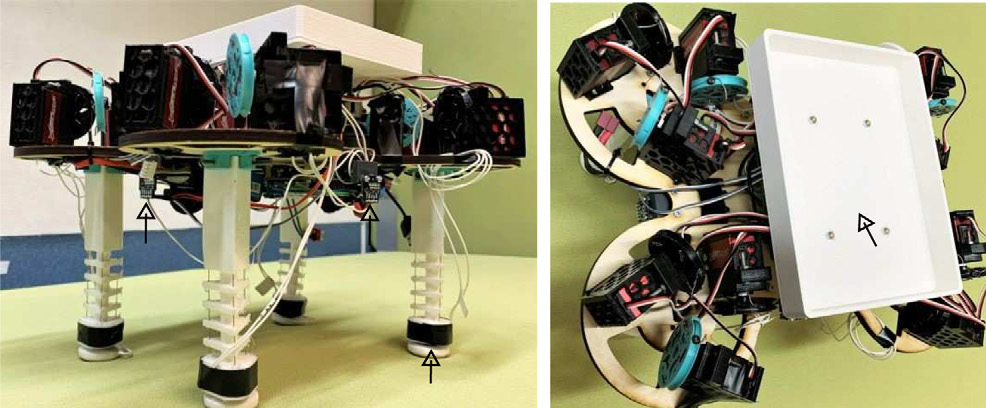IRIS: Novel Mechatronic Systems and Soft Robotics enabled by 4D Printing and Machine Learning

This research studies 3D and 4D printing with smart materials and the application of these technologies to the design and manufacturing of mechatronic systems and soft robots.
This project is part of the KTH ITM School's IRIS Initiative , which aims to contribute to increased sustainability in industry and society. IRIS works with digitalization, innovation and entrepreneurship.
Description
Soft robots are robots whose whole bodies or end-effectors are made from soft, elastic materials that permit continuous and responsive deformations. The soft materials endow soft robots the advantages of safe interactions with humans and adaptive movement in irregular environments, but also incur challenges in design, fabrication, and control of soft robots. First, mature sensors and actuators are designed for rigid robots, and hence incompatible with soft robots. Soft sensors and soft actuators using smart materials need to be developed and seamlessly integrated in the soft robots. Second, soft robots are often fabricated ad hoc in multiple steps with many devices and professional skills. A unified fabrication procedure that can embed soft sensors and actuators inside the robot bodies is desired. Third, it is difficult to obtain concise mathematical models amenable to rigorous control synthesis approaches. Furthermore, the control problem for soft robots is inherently nonlinear and time variant. A satisfactory controller must be robust against varying working conditions and adaptively improve its performance online. The contributions of this project are to exploit and improve 3DP and 4DP methods to embed sensors and actuators inside robots, use smart materials for novel means of perception and auction, and develop data-driven and learning based control methods for soft robots. Soft robots are promising for personal care such as home services, elderly/health care.
Research Questions:
- How can we exploit smart and responsive materials and the 4D printing technologies to realize novel perception and actuation mechanisms for novel mechatronic systems and soft robots?
- How can we embed sensors and/or actuators into the machine and robot body by 3DP/4DP methods?
- How can we apply machine-learning methods to the modeling and control of soft robots?
Expected Deliverables:
Sensors and actuators using smart materials (2022 - 2023)
Design and 4DP of soft robots (2022 - 2023)
Learning and control of soft robots (2022-2023)
few prototypes of soft robots (2022-2023)
Journal articles
Collaboration:
PI: Assoc Prof Lei Feng (lfeng @kth.se), Mechatronics
Prof Lihui Wang (lihuiw @kth.se), Sustainable Production Systems
Assoc Prof Xi Vincent Wang (wangxi@kth.se ), Sustainable Production Systems
Prof Malin Åkermo (akermo @kth.se), Lightweight Structures
The research is partly funded by the ongoing VR project: #2017-04550, Closed-Loop 4D Printing with High Precision, from 2018 to 2021. The ongoing VR project studied fundamental technologies for performing 4DP and built experimental infrastructures from scratch to support the research. The main contributions include selection and design of smart materials for 4DP, improvement of commercial 3D printers to support 4DP, electronics for the sensing and control of 4DP process, feedback control methods for precisely regulating the shape change process of 4DP, and fabrication of soft robots by 3DP/4DP, etc.
Xi Vincent Wang, has an ongoing VR Starting Grant: #2019-05232, Printing of Soft Untethered Devices with Re-programmability and Self-maintainable shapes.
The research is also related to .
